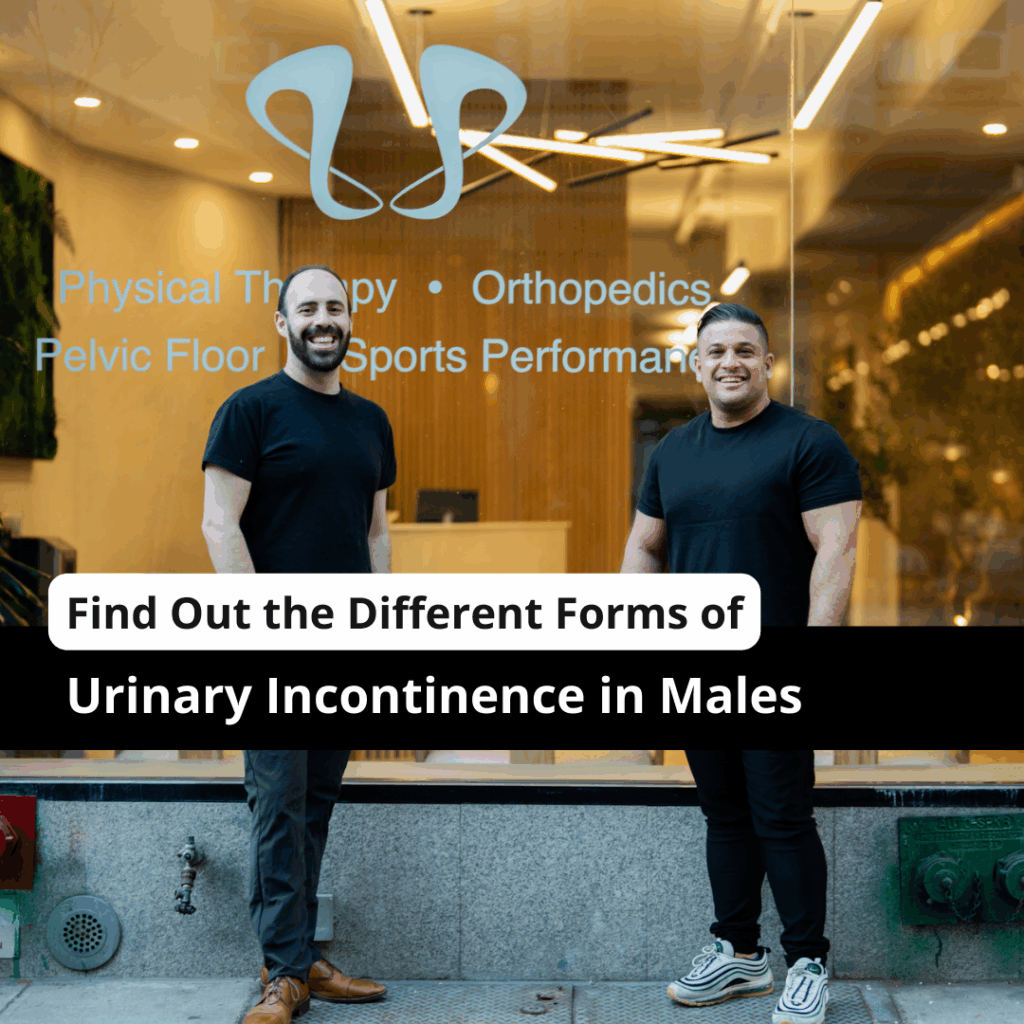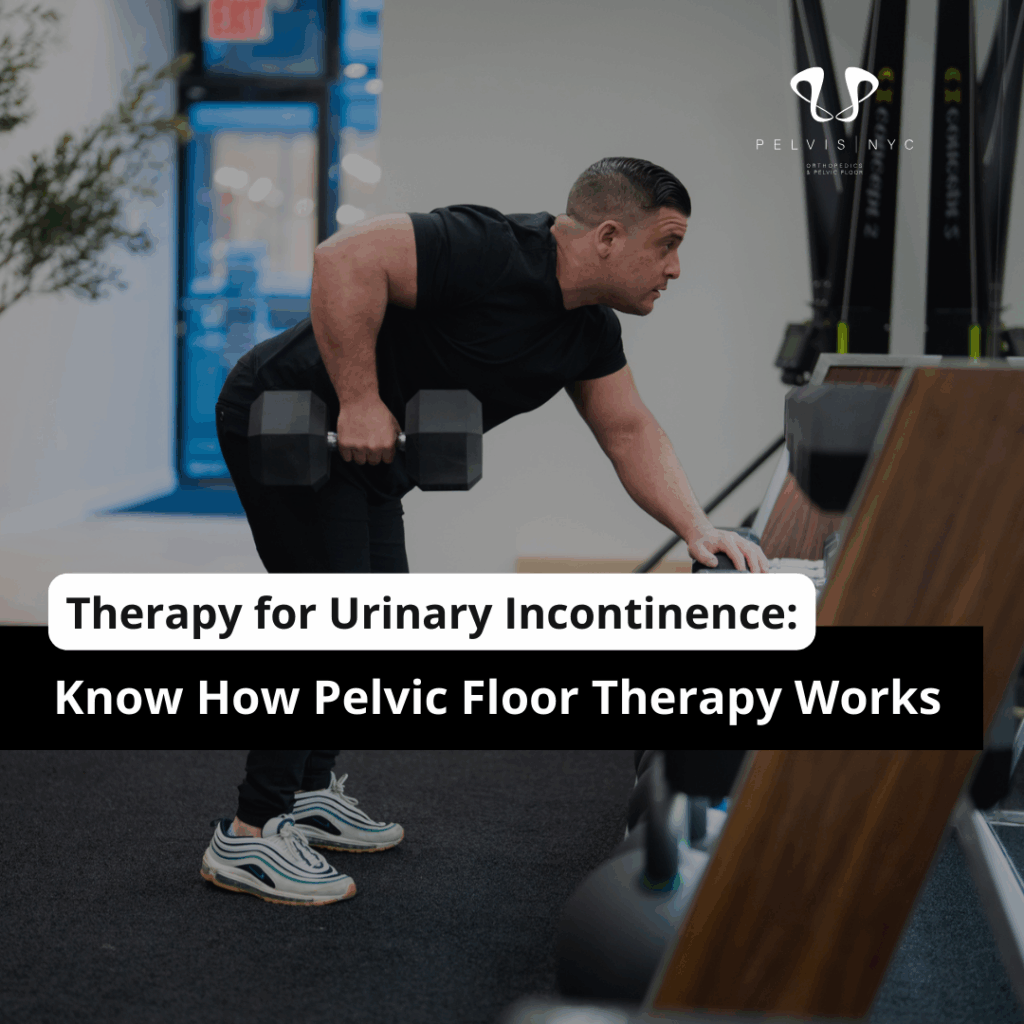Suppose you’ve been living with pelvic pain, bladder leaks, or discomfort during intimacy. In that case, you may be experiencing something that’s rarely talked about but far more common than you think — vaginal muscle spasms.
At Pelvis NYC, we help women overcome these symptoms in a supportive, judgment-free environment. Our pelvic pain specialists — including experienced physicians and pelvic floor physical therapists — diagnose and treat pelvic floor disorders with personalized, comprehensive care. Many women come to us believing these issues are just part of getting older, part of being a mom, or something they have to “tough out.” The truth is, vaginal muscle spasms are not a normal part of life — and you can treat them.
Our lead female pelvic floor physical therapist, Dr. Samantha Vargas, PT, DPT, is here to help you take back control of your pelvic health. As part of your evaluation, Dr. Vargas will perform a thorough physical exam to identify the underlying cause of your symptoms and guide your treatment plan. Our personalized approach is designed to relieve pain and restore your pelvic health.
Introduction to Pelvic Floor Muscles
The pelvic floor muscles are a group of muscles located at the base of your pelvis, forming a supportive hammock for your pelvic organs—including the bladder, uterus, vagina, and rectum. These muscles work in harmony with your abdominal and hip muscles to provide stability, support, and control for essential functions like urination, bowel movements, and sexual activity.
When your pelvic floor muscles are healthy, they contract and relax as needed, helping you maintain continence, support your pelvic organs, and enjoy pain-free movement. However, if these muscles become too tight, too weak, or lose their coordination, you may experience pelvic floor muscle spasms and other symptoms of pelvic floor muscle dysfunction. This can lead to muscle spasms, discomfort, and issues with bladder, bowel, or sexual health.
Understanding the vital role of your pelvic floor muscles is the first step in recognizing when something isn’t quite right. If you notice other symptoms such as pelvic pain, difficulty with bowel movements, or changes in bladder habits, it may be a sign of pelvic floor muscle dysfunction—and a reason to seek expert care.
What Are Vaginal Muscle Spasms?
Your pelvic floor is a network of muscles that support your bladder, uterus, and rectum. These muscles should work in balance — contracting when needed, relaxing when it’s time to release.
When the muscles around the vagina contract involuntarily, either constantly or intermittently, this is known as vaginal muscle spasms (a type of muscle spasm or involuntary contraction). These spasms can cause pelvic pain, bladder or bowel problems, and sexual discomfort.
Vaginal muscle spasms are a type of pelvic muscle spasm and are sometimes referred to as vaginal spasms.
Unlike a fleeting cramp, ongoing involuntary contractions or muscle contractions can lead to persistent symptoms and can worsen over time if left untreated.
Common Signs You Might Have Vaginal Muscle Spasms
Patients at Pelvis NYC often come in with one or more of the following symptoms:
- A feeling of incomplete bowel movements
- Urine or stool leakage
- Lower back, pelvic, or genital pain
- Pain or burning during urination
- Trouble starting your urine stream
- Painful intercourse or discomfort afterward
A gentle vaginal exam may be performed to assess the pelvic floor muscles and the vaginal opening for areas of tenderness or spasm.
During a pelvic floor assessment, these spasms often feel like tight, rope-like bands of muscle deep inside the pelvic area — much like knots you might find in your shoulders, but in a much more sensitive location. Diagnostic tests can help determine if symptoms are due to muscle spasms or if there is an infection present.
Chronic Pelvic Pain
Chronic pelvic pain is often one of the most frustrating symptoms associated with vaginal muscle spasms. This pain can feel dull, aching, or sharp, and it may radiate into the lower back, hips, or thighs. Ongoing pain is a hallmark of chronic pelvic pain, highlighting its persistent and disruptive nature.
For many women, chronic pelvic pain develops gradually and is dismissed as “normal” period pain, lingering postpartum discomfort, or simply part of aging. In reality, tight pelvic floor muscles can create ongoing irritation of nearby nerves and tissues, perpetuating the pain cycle.
Emotional pelvic pain and mental health factors can also contribute to or exacerbate chronic pelvic pain, making it important to address both physical and psychological aspects for effective treatment.
At Pelvis NYC, we focus on identifying whether pelvic floor tension is contributing to your chronic pelvic pain and creating a tailored plan to break that cycle.
Pelvic Floor Spasms
Pelvic floor spasms occur when any of the pelvic floor muscles contract involuntarily, often without your conscious awareness. Vaginal muscle spasms are one type of pelvic floor spasm, but they can also affect the muscles around the rectum and urethra. Pelvic floor spasms are one of several pelvic floor disorders that can affect women, including incontinence and prolapse, each with different causes and symptoms.
These spasms can make daily activities — like sitting, walking, or using the bathroom — uncomfortable or even painful. They can also be linked to bladder urgency, bowel issues, or sexual discomfort.
Our treatment approach focuses on restoring flexibility and coordination to these muscles through hands-on therapy, neuromuscular re-education, and personalized exercises. We use evidence-based methods to treat pelvic muscle spasms and restore function, ensuring each patient receives care tailored to their specific pelvic floor disorder.
Interstitial Cystitis and Pelvic Floor Tension
Interstitial cystitis (IC) — also called painful bladder syndrome — is a chronic bladder condition that can cause pelvic pain, frequent urination, and a constant feeling of needing to go.
What many women don’t realize is that pelvic floor spasms and vaginal muscle tension often co-exist with IC. Tight pelvic muscles can irritate the bladder and surrounding nerves, making symptoms worse. Symptoms of interstitial cystitis can mimic those of a urinary tract infection, but diagnostic tests often show no infection is present. Overactive bladder symptoms, such as urgency and urinary frequency, can also be linked to pelvic floor tension and spasms.
At Pelvis NYC, we work closely with IC patients to release pelvic floor tension, improve bladder habits, and reduce overall pelvic pain — creating a more complete approach to symptom management.
Why Do Vaginal Muscle Spasms Happen?
Identifying the underlying cause of vaginal muscle spasms is essential for effective treatment. The causes are often layered and can include:
- Childbirth — especially long or traumatic deliveries
- Pelvic surgeries — pelvic surgery can be a potential cause, as it may leave scar tissue or alter pelvic anatomy
- Pelvic inflammatory disease — can contribute to pelvic pain and muscle spasms
- Chronic straining from constipation or heavy lifting
- Hormonal changes during menopause
- Injury or falls — physical trauma, including injury or falls, even years after the event, as well as emotional or physical trauma, can trigger muscle spasms
- High intensity exercise — can cause muscle tightness or trauma in the pelvic region
- Frequent “just in case” bathroom trips
- Genetics — naturally weaker connective tissue
- Neurological conditions like Parkinson’s disease
Psychological trauma and nervous system dysfunction can also play a role in developing muscle spasms, as abnormal nerve signaling may perpetuate pain and involuntary contractions.
Reduced blood flow to the pelvic region and muscles surrounding the vagina can lead to increased lactic acid, contributing to pain and muscle tightness. Spasms can affect the pelvic muscle and vaginal muscles, impacting sexual intercourse, penetrative sex, and bowel movement. Chronic spasms may result in fecal incontinence, and muscle relaxants may be considered for severe cases.
Pelvic Health and Wellness
Pelvic health and wellness go far beyond just the absence of pain—they encompass your physical, emotional, and mental well-being. When pelvic floor muscles are functioning optimally, they support your daily activities, sexual health, and overall comfort. However, pelvic floor muscle spasms, sometimes felt as pelvic floor muscle twitches, can disrupt this balance and lead to a range of challenges.
Tight pelvic floor muscles or weak pelvic floor muscles can cause pelvic pain, make vaginal penetration uncomfortable, and interfere with normal bowel movements or bladder control. These symptoms of pelvic floor muscle dysfunction can impact your confidence, relationships, and quality of life.
Pelvic floor physical therapy is a proven, effective way to address these issues. Through a combination of manual therapy, stretching, relaxation exercises, and biofeedback, physical therapy helps restore normal muscle function and significantly reduce pelvic pain. Education about how to use and care for your pelvic floor muscles is also a key part of the process, empowering you to take control of your pelvic health.
By prioritizing pelvic health and wellness, you’re taking an important step toward relieving symptoms, improving function, and enhancing your overall well-being. Whether you’re experiencing pelvic floor muscle spasms, ongoing pelvic pain, or other symptoms of pelvic floor dysfunction, comprehensive physical therapy can help you regain comfort and confidence in your body.
Meet Dr. Samantha Vargas, PT, DPT — Female Pelvic Floor Specialist at Pelvis NYC
With a foundation in biomechanics and a passion for movement, Dr. Samantha Vargas began her career treating athletes — from NCAA Division I sports to professional baseball and rugby players. After earning her Doctorate in Physical Therapy and completing a prestigious sports residency at the University of Delaware, she became a board-certified sports clinical specialist.
Over time, Dr. Sam noticed a recurring theme: many of her female patients — whether athletes, active women, or new mothers — were quietly struggling with pelvic floor dysfunction, often dismissed or misunderstood by other providers.
Determined to change that, she pursued advanced pelvic floor rehabilitation training to help women address issues like pelvic pain, incontinence, sexual dysfunction, postpartum recovery, and prolapse. Today, Dr. Sam blends her sports medicine expertise with pelvic health care — using biomechanics, manual therapy, neuromuscular re-education, and customized exercise programs to meet each woman’s unique needs.
Her approach is compassionate, confidential, and stigma-free. Whether you want to return to sport, recover after childbirth, or simply live without pain, she’s committed to helping you restore function, alleviate discomfort, and reclaim confidence in your body.
How We Treat Vaginal Muscle Spasms at Pelvis NYC
We personalize every woman’s care plan, which may include:
- Pelvic floor physical therapy — hands-on release, stretching, and coordination training provided by physical therapists who specialize in pelvic health
- Breathing and relaxation techniques — to reduce muscle tension
- Postural and movement retraining — to support long-term relief
- Lifestyle modifications — including healthy bladder and bowel habits
- Physician collaboration — for medications like muscle relaxers if needed
- Trigger point injections — for persistent pelvic muscle spasms and pain relief
- Vaginal dilators — to gradually relax vaginal muscles and improve comfort during penetration
- Vaginal estrogen — to improve tissue health and reduce symptoms of dryness or atrophy, especially in post-menopausal women
Your provider may perform a pelvic exam to guide treatment decisions and monitor your progress.
Our goal is to treat the root cause, not just mask symptoms — so you can get lasting results without unnecessary medication, injections, or surgery.
Take the First Step Toward Relief
Vaginal muscle spasms, chronic pelvic pain, pelvic floor spasms, and interstitial cystitis can feel overwhelming — but they are treatable. At Pelvis NYC, a female pelvic floor specialist provides care and understands the unique challenges women face.
You don’t have to live with pelvic pain or bladder and bowel issues. Relief is possible — and you deserve care that champions your needs.
📅 Schedule your consultation with Dr. Samantha Vargas, PT, DPT at Pelvis NYC today.




No comment yet, add your voice below!